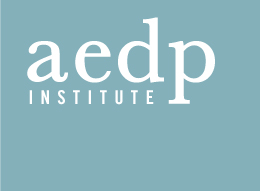Please select the blue "View & Purchase" button below next to the event you wish to attend.
Course Information

Agency, Will, and Desire as Core Affective Experiences in AEDP
This workshop will explore the possibility that there is a more pure experience of the self as being effective and agentic (sense of agency) that underlies adaptive action tendencies associated with many emotions we process in AEDP. We will explore in more detail the difference between maladaptive and adaptive core affective experiences and look at them in the context of development (in the negotiation of autonomy vs. shame) and AEDP concepts of Self-at-Best and Self-at-Worst as well as the Self-in-Transition. These questions will be examined in light of resilience, defined in AEDP as the self’s being on behalf of itself in either conservative or transformative ways and the possibility that sometimes something other than safety is required to help people move from self-protection to self-actualization.
Related to the above but slightly separate will be an exploration of the potential down sides of the now widely used trauma lens to understanding psychopathology. How much do we potentially undermine and underestimate people’s strength and capacities by an over-focus on trauma? The application of Attachment Theory and studies of mother-infant caregiving to psychotherapeutic encounters has emphasized the role of attuned responsiveness and empathy in the therapeutic relationship. But attachment and parenting look different with older children. Is it possible that our compassion can contribute to people remaining stuck? In this context we will look at parent-toddler secure attachment relationships and what they tell us about the importance of boundaries, autonomous exploration, and expectations to the healthy development of a secure self.
Finally, we will discuss instances in which two fundamentals of AEDP – empathy and authenticity- conflict and what we do in those situations.
Videotapes of actual sessions will be used to illustrate work with these issues. There will be ample time for discussion around these emergent issues in AEDP practice and participants’ sharing of clinical examples from their own work will be welcomed.
Presenter

Eileen Russell, PhD
Eileen M. Russell, Ph.D. is a clinical psychologist who is Senior Faculty and a founding member of the AEDP Institute. She teaches, trains, and supervises clinicians in AEDP in the New York area and nationally. She has just completed her first book,
Restoring Resilience: Transformative Therapy at Work. Dr. Russell practices in NYC and Montclair, NJ.
Target Audience:
This course is targeted towards Psychologists, Social Workers, MFTs, Counselors, and Creative Arts Therapists - All Levels.
Course Objectives:
- Distinguish between adaptive and maladaptive core affective experience.
- Define sense of agency and will and how those may manifest clinically.
- Aquire language to help move people to more adaptive coping and connection to their own sense of agency.
- Summarize the importance of thinking about attachment as something that is responsive to the developing needs of a growing child and young person and how the relationship needs to adapt to the increased capacity of the individual.
- Name instances in their own practice in which they experience a collision between empathy and authenticity and develop AEDP ways of addressing those impasses in their work.
Agenda
| 9:00 - 10:30 |
State 2: Maladaptive vs. Adaptive States; helplessness vs. action; shame vs. autonomy and clinical implications |
| 10:30 - 10:45 |
Break |
| 10:45 - 12:00 |
Discussion Q&A |
| 12:15 - 1:30 |
Lunch |
| 1:30 - 2:30 |
The impact of trauma theory; Applications of later-life attachment relationships to the therapeutic relationship; undoing pathogenic affects |
| 2:30 - 3:30 |
Videotape presentation of the role of limits and expectations |
| 3:30 - 3:45 |
Break |
| 3:45 - 4:30 |
When empathy and therapist authenticity collide; how to use ourselves to encourage growth and development in our clients |
| 4:30 - 5:00 |
Discussion Q&A |